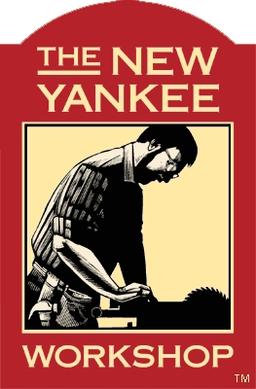Do you include things like particle board, MDF, plywood etc? Is there a line? And if so, what is it for you?
I would think it specifically excludes aggregate or laminated products like MDF, OSB, or plywood.
It is lumber sawn whole from the tree.
not mdf, not plywood, solid tree, no glues.
I donno, Ikea can do wonders with floor sweepings and Elmers.
Same for me.
I would accept boards glued together on an axis other than the thickness. So plywood, no, finger jointed wood, yes.
No glues? So a glued panel wouldn’t be solid wood?
Start with an old growth tree and run it through your 5axis cnc for the only true woodworking
Hmm. Good point. Technically, no, but most people would say yes. I think most people mean no glue in the base components, not in the assembly.
Solid wood has the same grain texture all the way through. Plywood, MDF, OSB, etc., are engineered wood. Basically, if it says ‘solid wood,’ my assumption is that what I see is what I get. If it’s plywood with a hardwood veneer, then it’s trying to trick me into thinking it’s something it’s not, and that doesn’t count. Although, technically, if a piece is made of plywood and doesn’t try to hide it, I guess you could argue it’s solid wood - because, technically, it is.
Something is “solid wood” if it’s made from pieces of solid-sawn lumber. If it’s built up from rotary-peeled veneers, woodchips, sawdust, or pulp, then it is not solid wood.
If it’s on a product like a piece of furniture, then it means any part not specifically labeled as “solid wood” is some sort of composite material.
e.g. “solid wood table top!” = legs and frame are made of the cheapest shit we could find
These are all great definitions.
A hard erection is another interpretation.Excellent delivery.
Yes, I’ve been told so on occasion.
Cardboard’s out.
Cellophane?
Is that a cardboard derivative?
More like a cousin?
Solid wood is generally understood to be lumber or timber, that is pieces of wood sawn from a tree. This is distinct from engineered wood or manufactured wood products which include MDF, plywood, and OSB. Engineered wood is made of fibers or strands that are pressed or glued, there is more in the final stock than just wood (I.e., glue, lignin separated via heating and pressing).
Particle board
and plywoodis made of sawdust and wood shavings. My definition of solid wood is something that came directly from a tree with the only major processing being cutting it into board, sheet, or similar.Plywood is literally neither of those things.
deleted by creator
The wood is continuous, from a single tree, from one surface to the other.*
*Veneer is ok I guess, but I would rather see a cheap real surface than an expensive sheet of paper.
Why is veneer ok? It could be covering anything?
Usually when something is called ‘solid wood’ but it has a veneer the underlying wood is real it’s just something cheap.
Agreed. A mahogany veneer on top of bamboo doesn’t really count as “solid wood” in my book.
I think someone is making an inappropriate joke
Someone else may be, but I was/am genuinely curious as to what others thought. I have a pretty “purist” view myself and wanted to see if I was in the minority or not.
I get the idea, but that was an honest answer. I usually refer to specific materials when working on a project, not a term to group a bunch of them. Either way works tho.
But if you would like to know my preference, the name of the tree translates to “european spruce” according to wikipedia. It’s because it’s readily available here, and usable inside and outside without a lot of extra treatment
Yeah, when I build stuff, I always just say the timber it’s made out of, but I was talking with someone about an old dresser. They mentioned it was “solid wood”, but the case was made out of an old press board. Which led to this question. I wanted to make sure I wasn’t confused.
Sounds like the person you were talking to may have been the confused one. (In all fairness, if they have no great interest in wood, woodworking, or furniture, they don’t really need to know that engineered sheet goods don’t count as solid wood.)
Ahh, context! Then I would probably think of oak, just because that’s what the few old dressers I’ve seen are made of. Although I would want to double check
In almost all contexts, “solid wood” means a piece of a tree cut to shape. No engineered wood products to include plywood, OSB, particle board/pressboard/chipboard, MDF, glulam, etc. I will make allowances for shop-made laminations as you might do when edge gluind panels, gluing up boards to make thicker posts than are available, or to ease bending/forming.
I have a suspicion and this comment section is confirming that. I briefly worked putting places together for short term rentals. Sometimes I had to put together IKEA furniture, other times it was “real wood” furniture. As in, the label claimed it was real wood. This “real wood” however always looked suspicious to me. The feel wasn’t there, the grain was barely convincing, no mention of any species, some “mistakes” seemed odd such as a random saw cut in an otherwise well finished piece. They were always manufactured somewhere in SEA. My guess is “real wood” has no clear definition as evidenced in this comment section and some people see it as an interchangeable term for good quality. So manufacturers can design something that looks like a solid white oak bench and charge premium for it. After all they’ve made no promises. If it were for instance engineered out of bamboo, it is in fact real wood Or can be defended as such.
Yeah, that’s exactly it. Even if is made of saw dust, it’s (at least in part) real wood in some sense. I would agree that’s nonsense.
deleted by creator








